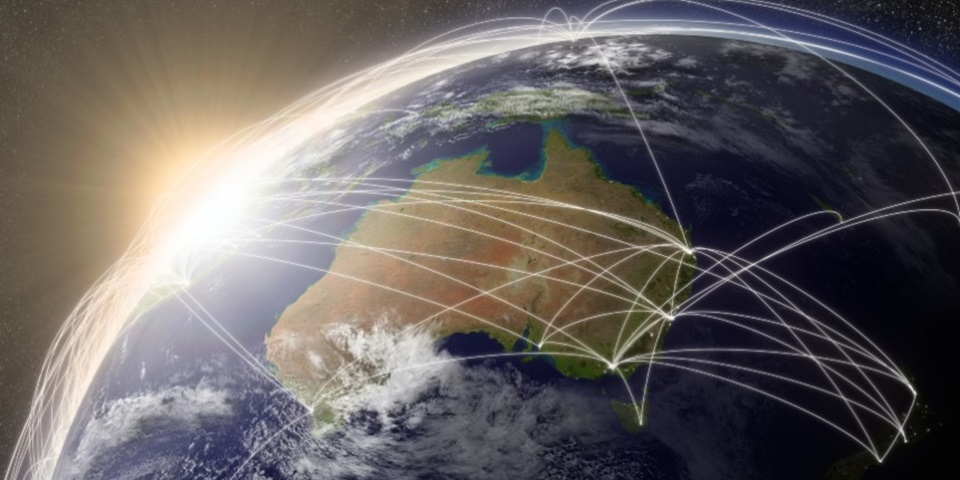News
What does a bio-secure future look like and will we all play along?

The COVID-19 pandemic has brought the issue of biosecurity into sharp focus. And with similar threats predicted to surface, how do we ensure a bio-secure future, and what role do we all have to play?
Since the onset of the COVID-19 pandemic, much of the progress towards 2030 targets set by the United Nations to “ensure healthy lives and promote well-being for all at all ages” has been delayed, and in some cases, regressed.
But as the interface between humans and animals continues to increase, COVID-19 is not likely to be the last threat to the pursuit of global health equity. So, what does a bio-secure future look like and what are our collective and individual responsibilities to achieve it?
Professor Chad Hewitt, Director of the Centre for Biosecurity and One Health, explains what we can learn from the past to prepare for the future.
From a moral standpoint, Dr Anne Schwenkenbecher, Senior Lecturer in Philosophy, examines our individual and collective moral obligations to mitigate future threats.
What does a bio-secure future look like?
In addition to events like a pandemic, incidences of decreased food security, habitat loss, or trade related impacts can have just as devastating effects on the efforts we make to enhance our biosecurity systems — whether it’s through big data research or the use of smart surveillance technology.
But what can we learn from the way we have responded to the COVID-19 pandemic? And what can these insights teach us about improving biosecurity systems for the sake of protecting equitable health outcomes?
“The pandemic has demonstrated that ‘our’ response actions are neither comprehensive, consistent, nor sufficiently rapid, to prevent global disruption,” says Professor Hewitt.
“Most actions have been reactive – rather than strategic – and have required on-the-fly policy development and adjustments to legal frameworks.
“This has resulted in global competition for medicines leaving many developing economies behind.”
If we are to mitigate risks from potential future threats and continue reaching towards United Nations targets, Professor Hewitt suggests establishing a globally agreed system of rules to manage our responses and prevent larger scale impacts.
This includes rules around early detection, identification and reporting of potential threats; political willingness and preparedness to act; and discerning the distinction between individual rights versus responsibilities.
While progress has already begun with member states of the World Health Organisation moving towards a Pandemic Treaty, how do we go about implementing such systems, and will everyone agree?
The paradox of collective action
According to Dr Schwenkenbecher, public health crises are a stark reminder of what social theorists call the ‘paradox of collective action’.
As Dr Schwenkenbecher explains, the paradox of collective action refers to efforts that may seem fairly inconsequential when undertaken individually, but when viewed as an aggregate, can have a significant collective effect.
“When we look at individual behaviour and actions only in isolation, we often miss that those actions taken together can have significant consequences — for better and for worse,” says Dr Schwenkenbecher.
Within the context of a public health crisis such as COVID-19, a high vaccination rate is one example of an aggregated good; a high number of individual vaccinations means a higher likelihood of reaching herd immunity, and subsequently, greater protection of vulnerable groups from serious illness.
“This holds for vaccination rates and herd immunity, it is also true for other collective action problems such as the reduction of our carbon footprint, panic-buying basic staples, and — ultimately — voting,” says Dr Schwenkenbecher.
“None of us has the power on our own to undermine or bring about the success of a collective effort, but if too many people fail to contribute, we will not be able to achieve what is collectively best."
Understanding our individual and collective obligations
For some, the concept of individual efforts to achieve large-scale change, implement protective policies for the greater good, or champion progression towards global health equity to mitigate future threats to biosecurity can feel somewhat futile.
However, as Dr Schwenkenbecher explains, it all depends on how you look at it.
Few doubt that we ought to reduce climate change or to combat a public health crisis. But we often struggle to reconcile the futility of our individual actions with the fact that together — and only together — we can make a difference. Professor Anne Schwenkenbecher
“We should feel encouraged to frame some of our obligations as collective, so we can escape the paradox of collective action.”
Professor Hewitt maintains a similar sentiment.
As a society, ‘we’ have agreed the United Nations' Sustainable Development Goals are desired outcomes for the future, therefore we have a moral obligation to support these goals. Professor Chad Hewitt
“More democratic societies expect the rights of the individual to outweigh the state, yet the moral responsibilities of individuals to their fellows is a critical component of a civil society – an individual’s rights should not place others at risk of injury or death.”